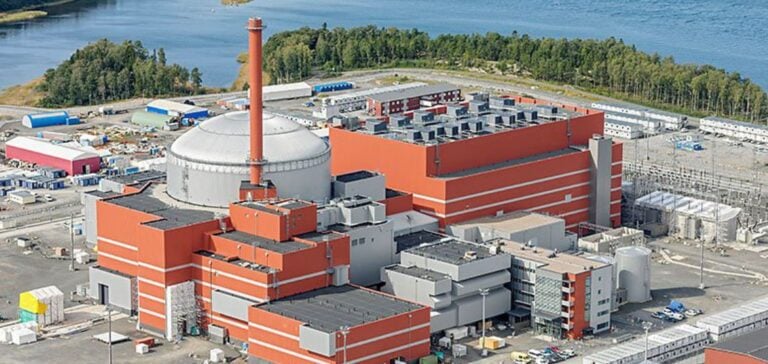The GenCost report, renowned for its unbiased economic analyses, offers precise cost estimates for new electricity generation, storage and hydrogen technologies up to 2050. The inclusion of large-scale nuclear power in the 2023-24 edition is in response to growing stakeholder interest in this technology following cost updates for SMR.
Assessing the cost of large-scale nuclear power
The report uses South Korea’s nuclear program to estimate the costs of large-scale nuclear power, considered the best example of a continuous construction program. The expected capital cost of a large-scale nuclear power plant in 2023 is estimated at AUD 9217 per kW (USD 6215 per kW). However, this cost could only be achieved if Australia embarked on an ongoing construction program, after building a first unit at a higher initial cost.
Comparison with SMR and other technologies
Electricity costs for large-scale nuclear under current capital costs and an ongoing construction program are estimated at between AUD 163 per MWh and AUD 264 per MWh, with a projected decline to AUD 141 per MWh to AUD 232 per MWh by 2040. These costs are “significantly lower” than those of SMR, which were revalued upwards in the report, reflecting recent data from the Carbon Free Power project in the USA, cancelled in November 2023.
Competitiveness of generation technologies
The report compares LCOEs (levelized electricity costs), finding that variable renewable technologies (solar photovoltaic and wind) offer the lowest costs. Excluding high-emission options, the most competitive generation technologies are solar thermal, gas with carbon capture and storage, large-scale nuclear and coal with carbon capture and storage.
Report flexibility and adjustment
Paul Graham, Chief Energy Economist at CSIRO and lead author of the report, stresses that GenCost is “flexible to adjust assumptions, scope and methodology” in response to feedback received during the formal consultation period and throughout the year.
The GenCost 2023-24 report provides a detailed and transparent assessment of the costs of electricity generation technologies, including large-scale nuclear power. Although requiring a long-term commitment and significant initial investment, nuclear could become a viable and competitive option for Australia, contributing to the energy transition to net zero emissions by 2050.






















